Use 'Print preview' to check the number of pages and printer settings.
Print functionality varies between browsers.
Printable page generated Saturday, 14 February 2026, 11:41 PM
Introduction
Introduction
The aim of this course is to get you started on thinking about yourself, where you are now and what you want to do in the future. Thinking about what you really want to do, and finding out how to make it happen, can really change your life.
Caring Counts was produced by The Open University in Scotland in collaboration with Scottish Young Carers Services Alliance, together with individual carers centres and Carers Trust Scotland.
Watch the short film ‘Caring Roles and Learning Lives’ below to hear why reflection is valuable in terms of helping you recognise skills and abilities developed in your caring role. You will hear too about the importance of ‘me time’ – taking a break from caring responsibilities and an opportunity for personal development.

Transcript
In the following sessions, carers living in Scotland tell us about their experiences and how reflection has helped them. While some aspects of their stories and circumstances may chime with your own situation, all their experiences and journeys, like yours, are unique.
What is reflection?

When we look in the mirror we see our reflection. In everyday life we sometimes talk about being in a ‘reflective mood’, and we tend to reflect on things that don’t have an obvious or straightforward answer. We might take time to reflect on something to consider it in more detail, in greater depth and in a new way.
Reflection is thinking about yourself to gain greater self-awareness and understanding. Consciously or unconsciously, it involves our thoughts, ideas, experience and knowledge. You may enjoy the process of reflection or you may find it uncomfortable, or a mixture of both.
Reflection is a way of working on what we know already to create new knowledge and understanding. In this way it can help us recognise and appreciate skills and abilities that we have but often overlook. We can reflect at any time in our lives to help us examine our feelings around a whole range of experiences. It can help us review our decision making and motivations and for that reason it is used in learning and workplaces in relation to personal development and career planning.
While reflection can be uncomfortable it can also be liberating and empowering. Developing a better understanding of ourselves and our situation will enable us to move on.
The diverse experiences of carers have informed the development of this course. Some are in a position where their caring role is changing. For others their role stays the same, but they are finding new ways to cope.
Gavin, a carer support worker who leads on a project for young adult carers, sums up the skills and qualities he’s seen in carers:
Being a carer brings a lot of skills and attributes that often aren’t recognised, carers are often extremely organised, reliable and very good at handling pressure. They can quite often identify other people’s emotion, just at a glance.
They’ve got so many skills and personality to bring into employment, and education and life in general.
Who is this course for?
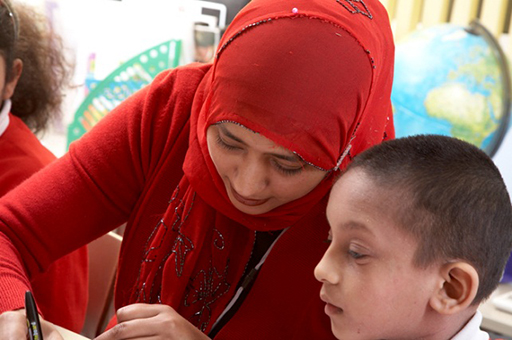
Caring Counts was developed with and for carers. This course is suitable for anyone with a caring role who is providing unpaid care and support to family members or to friends who are affected by disability, age, or physical or mental illness.
Caring can often continue even if the cared for person moves into a care home or other residential setting. Anyone can become a carer at any time. Perhaps your caring role has newly ended or perhaps it has just begun? Or maybe you have been a carer for many years and expect to continue in this role.
We hope that everyone who has experienced caring will find something useful here.
If you work alongside or have a role in supporting carers, this course will help to raise your awareness and increase your understanding of carers’ experiences, as well as appreciating their skills and qualities.
What is the course about?
Caring Counts contains a mixture of personal reflection, ideas about how we learn from reflection, and activities to try out yourself.
The course features the lived experience and personal reflections of 12 carers from diverse backgrounds and with different caring responsibilities. Their stories, together with their reflective activities, illustrate a range of personal journeys and the circumstances and challenges that have affected real life choices.
For example, Hedar, who has a disability, cares for her disabled sister and her father, who has dementia. Hedar’s caring role is unlikely to change soon. She chose distance learning as a way to create time and space for herself while caring at home.
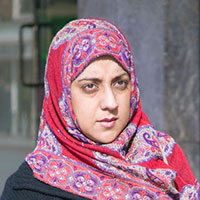
My way of thinking is completely different … I feel I can think deeper … These things make me happy because I feel I’m improving myself. I’m improving my brain, doing something for my brain!
Clair, another carer featured in this course, looked after her mum, who died last year. She talks about the positive aspects of caring that she has recognised with the support of her local young adult carers group:
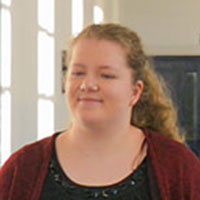
We’re used to stressful situations, so we’ll bring a lot to any job … that’s a definite positive, as well, just the relationship you have with the person you’re caring for. I mean, you become a lot closer to them, and they’re relying on you.
Lesley, who has already completed a reflection course, tells us how the process of reflection has helped to boost her confidence:
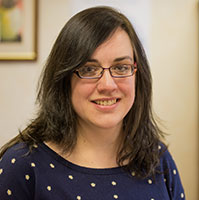
I think you definitely lose confidence if you have to give up a career, for whatever reason. You lose your sense of identity and worth. Being a carer can be isolating too. Not working also has a huge impact financially. As time goes on, your self-esteem can erode and you can start to feel that there are no opportunities available…
Reflection helps you realise your potential, which can get lost in your caring role.
Lesley also completed an Open University access course. While still caring for her son, she has gone on to study business studies part time at a local university.
You’ll hear more from Hedar, Clair and Lesley shortly.
In the meantime you can meet all the carers you’ll be hearing from during the course.
Why might this course be useful to me?
By working through Caring Counts you will achieve the following learning outcomes:
- a clearer understanding of the experiences that carers could reflect on, including their roles, actions and decisions
- an understanding of the various skills that could be developed within a caring role, and how some of these are transferable to other contexts
- an appreciation of personal qualities developed through a caring role
- an idea of the directions carers might like to go in
- an idea of what it is possible for carers to achieve in their immediate future
- an understanding of the learning options open to carers
- an idea, or ideas, about possible learning paths
- as a learner, how to go about finding out what you need to know
- the ability to use information technology (IT) to carry out reflective activities in writing and communicating
- the ability to use the internet to find information useful to you
- the ability to explore and use new ways of expressing ideas.
We hope that carers will find this course useful in reflecting on experiences that have some importance to them, and that it will help them with future choices and decision making.
The activities within each session assume the carer’s perspective. The learning outcomes are generic to accommodate the focus of different learner groups. The course material and quizzes provide an opportunity to consolidate your learning.
What’s in the course?
Caring Counts is structured into eight sessions. As you progress through the course and learn more about how reflection works, you will be invited to try out reflective tasks that ask you to think about your own experiences. Each session will take between one and two hours to complete, depending on the amount of time you spend on the activities. If you are working with a mentor or a group, the discussion may take much longer.
The activities within each session are designed to help you reflect on the following themes:
- defining myself and how I feel about my present situation
- learning by looking at my life over time
- identifying my skills and personal qualities
- thinking about my learning path
- exploring employment options
- deciding my goals and planning my future
- creating my action plan
- what I have learned.
There might be areas of the course that are particularly relevant or helpful for you. For example, if you’re at a stage where you feel you need to find employment you might want to spend longer on Sessions 5 and 6. If so, you can allocate more time to those sessions to tailor the course to suit your needs. If there are areas you feel are less relevant, you can spend less time on them or skip them completely. However, you may find them useful when completing the final quiz if you want to gain your badge.
If English is not your first language there are resources at the end of the course to help you, including an online dictionary, a glossary of technical terms or specialist words and phrases, and links to free resources from The Open University such as Am I ready to Study in English?. Further resources are given in the list of useful websites.
This is your reflection journey, so you can set your own pace.
Progressing through the course
As you progress through the course you are invited to engage in reflection activities relevant to the course themes and learning outcomes. You can complete these activities in a couple of different ways: you can click on the activity material provided at each stage, or you can use My Reflection Log, a personal resource that allows you to collate in one document a record of your progress through the course as you undertake the various activities.
If you are participating in the course in your role as a support worker rather than as a carer, you may want to reflect on the experiences of the carers presented here. Alternatively, you may find that individual activities have a bearing on aspects of your own life and experience.
My Reflection Log
My Reflection Log can be downloaded and saved to your computer or to a memory stick. It might be helpful to download and save a copy now. That way you’re ready to start. You can open and add to it whenever you want but always remember to ‘save’ every time you use it. You may find it useful to have two windows or two tabs open so you can navigate easily between the course and your Reflection Log.
Alternatively, you can print out the log and write down your thoughts by hand. Whichever way you choose, you will find it helpful to make notes as you work through the course.
Once you have completed the course your Reflection Log will provide a useful reference and basis for planning and taking your next steps, whatever they might be.
Badges and quizzes
At the end of Sessions 3 and 6 there is a practice quiz with questions based on the themes in this part of the course. The quizzes are optional but they are fun to do and can help to consolidate your learning. If you wish to gain a digital badge, you should attempt both practice quizzes. At the end of Session 7 there is a final quiz that you must complete successfully if you wish to gain your badge.
You can only take part in the Caring Counts quizzes if you enrol on the course. To enrol you’ll need to open an Open University account.
- If you already have an account, just click on ‘Sign in to enrol’ and enter your user name and password. If you don’t have an account, create your new account here.
- Follow the instructions, and once you have finished registration by reaching the My Account page simply close the browser window or tab.
- Then refresh THIS page to update your status so you can enrol.
The Caring Counts badge
While studying Caring Counts you have the option to work towards gaining a digital badge.

Digital badges
Digital badges are a new way of demonstrating online learning. Schools, colleges and universities are working with employers and other organisations to develop open badges that help learners gain recognition for their skills, and support employers to identify the right candidate for a job.
The Caring Counts badges show that you have gained an understanding of the process of reflection and personal planning, and that you have achieved the learning outcomes listed within the course.
Carers have told us that they found the Caring Counts badge useful when applying for jobs as it created a talking point, gave them an opportunity to articulate the skills they’d gained from caring, and helped to account for gaps in their work history when they had to give up work to care.
If you are interested in finding out more about digital badges go to the Badges and quizzes guide.
Course completion criteria
To gain the course badge you need to have enrolled on the course and achieved the following completion criteria:
- read each session
- attempt both practice quizzes
- achieve 40% or more for the final quiz.
You don’t need to read a full session or complete a quiz in one sitting. Each time you visit and log into the course it keeps a record of your progress. This means you can stop and come back to where you left off at any time.
Once you’ve completed a quiz to the best of your ability it’s time to submit your answers. For the final quiz you can only do this once, so make sure you’re happy with how you’ve answered all the questions before you click on ‘submit all and finish’.
Once you have successfully completed the course badge criteria, you will see your badge in your profile under My badges on OpenLearn Works. You will be able to display your Caring Counts badge in other online places too.
Working individually or as part of a group
You can work through the course individually or, if available, with the support of a mentor such as a support worker at a local carers centre. Staff at carers centres may also use the course as the basis for running their own facilitated sessions and workshops for groups of carers.

Using the course by yourself
Reflection isn’t easy; it can be challenging to understand what you have learned from your past experiences and the decisions you have made. It can be helpful to work through such reflections with some sort of additional support. Do you have a supportive close friend or mentor who might help or simply listen to your reflections? Alternatively, you might prefer to investigate whether there is an opportunity to take part in a group session supported by staff at your local carers’ centre. (See the useful websites in the Resources at the end of the course for information on national carers organisations.)
It’s fine to work through the course on your own. Make sure to give yourself plenty of time if you can, and try to find some moments of peace and quiet to work through the activities. It can be difficult to make time when you are busy with your caring role, or you may feel guilty about taking time for yourself. Carers who have completed the course have told us that it’s worth taking the time as they have gained so much from the course. Their tips for making time include:
- getting up early to study when the house is quiet
- studying while the person you care for is out
- delegating housework to other family members.
Working in a group
If you belong to a group of carers that meets in person you could work through this course over a number of weeks. You might want to share your comments and ideas at the group meeting or online.
When you reflect with the support of a group you can share ideas and learn from each other. But you all need to have confidence in each other and be committed to respecting each other’s ideas, beliefs and experiences. If you are working in this way, all group members should agree some ground rules at the outset, including not to discuss outside the group anything that members say. No one should ever feel the need to discuss anything they do not wish to talk about, and each person should decide individually what they wish to contribute.
Take some time to agree how you will respect each other and ensure confidentiality if you are working through this course in a group, whether in person or online.
You may wish to use social media to share your learning with the group or with your facilitator, especially if you are not able to meet up easily. Do remember to make sure to agree as a group your way of working online before you start. Some of the group may not want to use social media, so this should be optional. The Open University does not endorse any particular social media site and is not responsible for content posted in this way. You could talk to your local carers’ centre to find out more about networking opportunities available.
Delivering a group session
If your role involves supporting carers, then this course is also available as a resource for you to use and adapt as facilitated sessions for carers in your setting. Check out the Guide for facilitators to help you plan and get started.
Summary
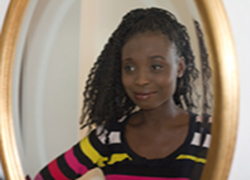
This introduction has set out the aims and objectives of Caring Counts: a self-reflection and planning course for carers. We highlighted reflection as a process to develop self-knowledge, which in turn will help to prepare you for moving forward to whatever is it you want to do. We have outlined the collaborative and learner-centred approach taken in the development of the course and introduced you to the carers whose diverse experiences have informed its development.
Are you ready to start reflecting?
Session 1: Defining myself and how I feel about my present situation
Acknowledgements
This course was written by Lindsay Hewitt, Sarah Burton and Julie Robson.
Except for third party materials and otherwise stated (see terms and conditions), this content is made available under a Creative Commons Attribution-NonCommercial-ShareAlike 4.0 Licence.
The material acknowledged below is Proprietary and used under licence (not subject to Creative Commons Licence). Grateful acknowledgement is made to the following sources for permission to reproduce material in this unit:
Images
Unit image: © The Open University
Figure 1: Man in mirror Josh Blake/iStockphoto.com
Figure 2: © The Open University
Figure 3: http://www.johnbirdsall.co.uk/ (model image only)
Figure 4: photo by Ross Finnie for © The Open University
Figure 5: photo by Ross Finnie for © The Open University
Figure 6: © The Open University
Figure 7: Girl in mirror © Giewittertkind/iStockphoto.com
Video
Caring Roles and Learning Lives video: © The Open University
Every effort has been made to contact copyright owners. If any have been inadvertently overlooked, the publishers will be pleased to make the necessary arrangements at the first opportunity.
Don't miss out:
1. Join over 200,000 students, currently studying with The Open University – http://www.open.ac.uk/ choose/ ou/ open-content
2. Enjoyed this? Find out more about this topic or browse all our free course materials on OpenLearn – http://www.open.edu/ openlearn/
3. Outside the UK? We have students in over a hundred countries studying online qualifications – http://www.openuniversity.edu/ – including an MBA at our triple accredited Business School.